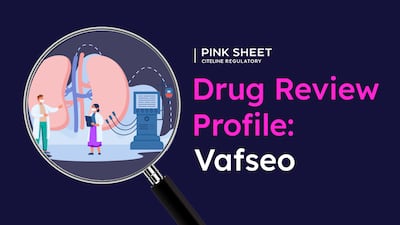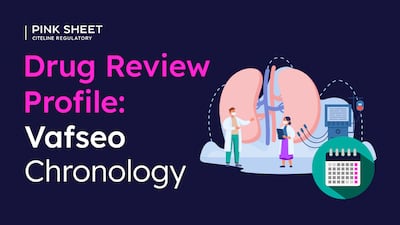Product Reviews
US Advisory Committees

Lexicon’s Zynquista: Negative Adcomm Vote In Type 1 Diabetes Includes Support For Revised Indication
Some panelists favored use in T1D patients with mild chronic kidney disease, even though that was not the original indication Lexicon proposed, which was rejected in an 11-3 vote.

The Pharmacy Compounding Advisory Committee unanimously voted to add hydroxyprogesterone caproate products for reducing the risk of recurrent singleton spontaneous preterm birth to the Withdrawn or Removed List under sections 503A and 503B of the Food, Drug and Cosmetic Act.

The Zynquista application in type 1 diabetes received a complete response letter in 2019. This time, Lexicon seeks approval for patients with T1D and chronic kidney disease. FDA review staff said making definitive conclusions about the magnitude of glucose-lowering effects in this population is difficult, and the risk of diabetic ketoacidosis remains.

Recent and upcoming US FDA advisory committee meetings and a summary of the topics covered.
EU CHMP

The European Medicines Agency is conducting a public consultation on proposed revisions to its policy on how it handles any conflicts of interest of its scientific committee members and experts.

Decision contrasts with successful journey in the US, where it was approved with Fast Track designation in 2023. Astellas says its considering “every potential action” to bring GA drug to patients in Europe.

This is an update of recommendations from the European Medicines Agency's Committee for Medicinal Products for Human Use on the authorization of new medicines in the EU, and updates on EU marketing authorization changes recommended by the CHMP.

Novo Nordisk’s Alhemo and Ionis/AstraZeneca’s orphan drug Wainzua are among 10 new medicines that the European Medicines Agency has recommended for pan-EU approval this month.
Approvals

The UK’s drug regulator has approved Eli Lilly’s early Alzheimer’s drug Kisunla, but England’s health technology assessment agency NICE said that the product “does not currently demonstrate value” for the National Health Service.

This is an update of recommendations from the European Medicines Agency's Committee for Medicinal Products for Human Use on the authorization of new medicines in the EU, and updates on EU marketing authorization changes recommended by the CHMP.

The Therapeutic Goods Administration appears to share similar safety concerns regarding Leqembi as those expressed by the European Medicines Agency when it rejected the drug in July.

The sponsors of medicines that are nearing the end of the regulatory review cycle in the EU could this week be asked to explain why the European Medicines Agency should recommend approving their products.
Complete Response Letters

The company will file a new drug application with the US FDA by the end of the year for tradipitant in a different indication, motion sickness.

Sponsor of psychedelic PTSD treatment will try rarely successful formal dispute resolution process after receiving a complete response letter.

US FDA would need to approve 44 novel agents by year-end to match 2023’s big total, but only 40 candidates are known to have user fee goals in the second half of 2024.

A Pink Sheet analysis finds US approval preceded European Union clearance for 80% of products approved in both areas, but when EU approval came first, it beat the FDA by a median of 13 months. US-first approvals came close to six months before the EU.
Drug Review Profiles

Vadadustat's review overlapped with two other oral HIF-PH class drugs. Safety issues with FibroGen/AstraZeneca’s roxadustat drew attention during vadadustat's first-cycle review, while GSK’s Jesduvroq labeling and postmarketing requirements informed the second-cycle approval.

The Pink Sheet Drug Review Profile explores the US FDA’s approval of vadadustat to treat anemia in chronic kidney disease patients on dialysis. A complete response letter cited the risk of drug-induced liver injury, but postmarketing data from Japan reassured reviewers.

The Pink Sheet’s Drug Review Profile looks at the timeline behind the development and US FDA approval of Akebia’s Vafseo, a treatment for anemia in chronic kidney disease patients on dialysis.

Pink Sheet’s Drug Review Profile explores Amgen’s Wezlana, an interchangeable biosimilar to Janssen’s Stelara. FDA determined late in the review that switching studies generally would not be needed for interchangeable ustekinumab products, prompting Amgen to seek the designation.
Post-Marketing Regulation & Studies

The US FDA Pediatric Advisory Committee uses web-posted reviews of “low safety risk” products to keep up with postmarketing monitoring requirements amid rising interest in pediatric development.

Sponsors Aim To Avoid Confirmatory Trial Hurdles That Plagued Ocaliva In Primary Biliary Cholangitis
The FDA and sponsors of two new accelerated approval drugs for PBC have taken steps in study design, initiation and reporting transparency to ensure timely completion.

Long-term follow-up requirements have taken a conservative approach, but could be ripe for re-examination and global harmonization, Kite Pharma executive director says, while former FDA gene/cell therapy office head Wilson Bryan wants the classwide REMS eliminated.

An FDA question to a patient concerned about the negative impacts of the CAR-T boxed label warning during a recent listening session indicates the agency may be thinking about improving its dissemination of the information.